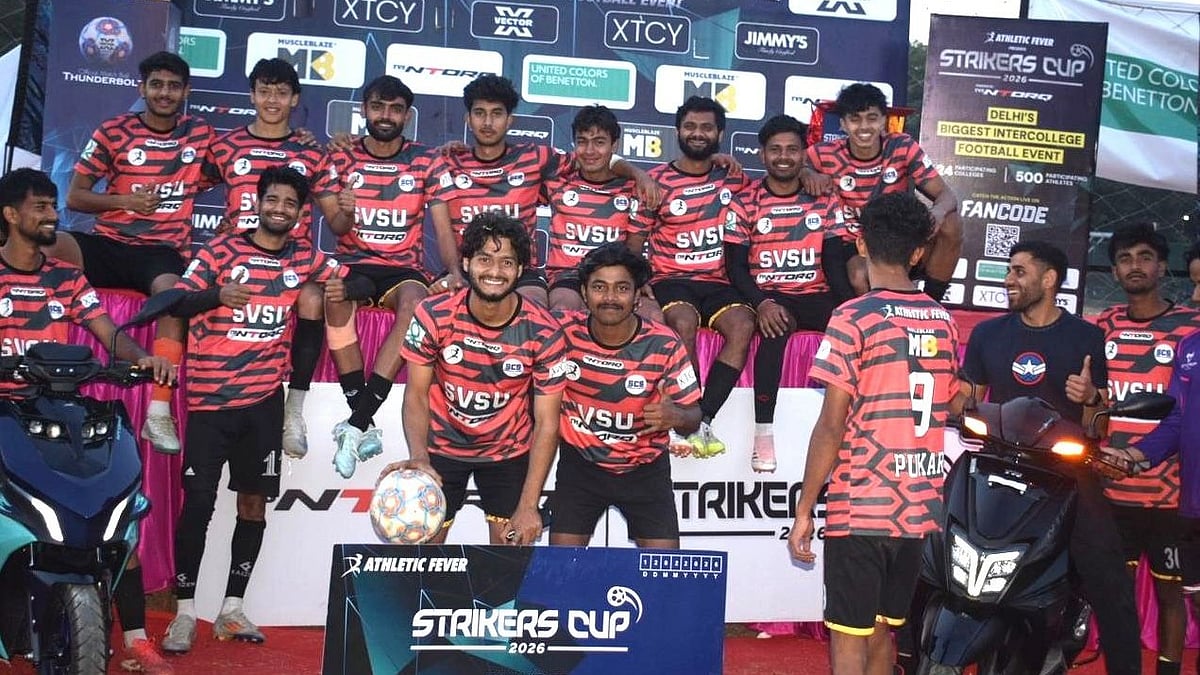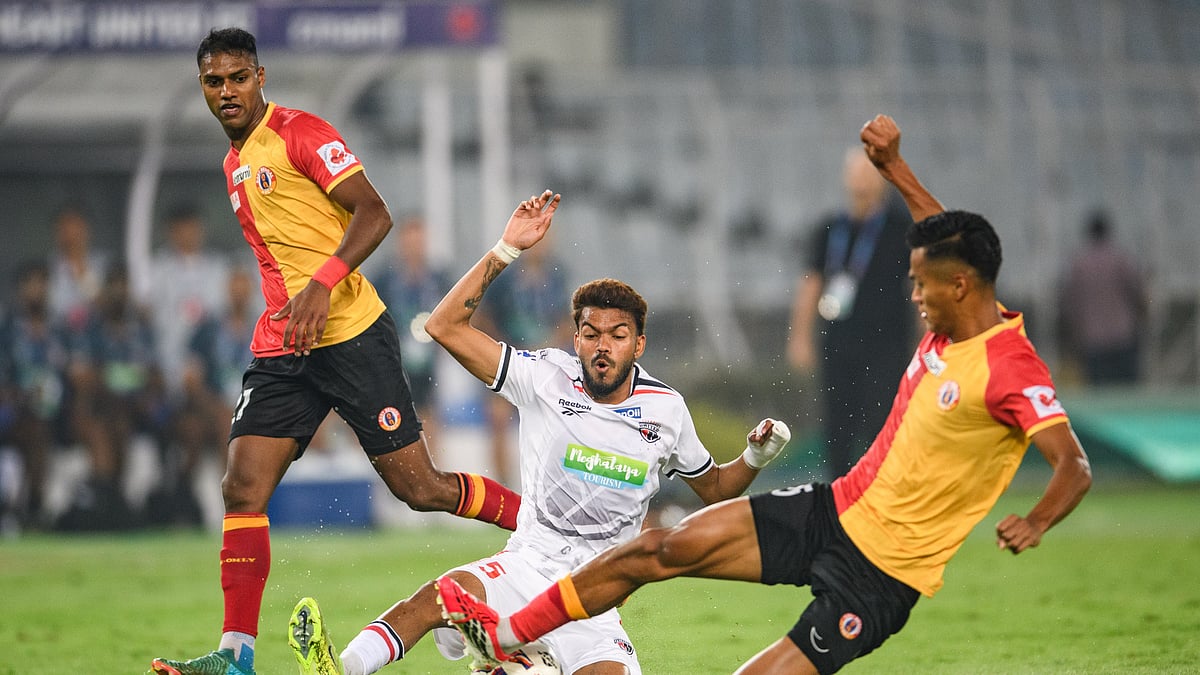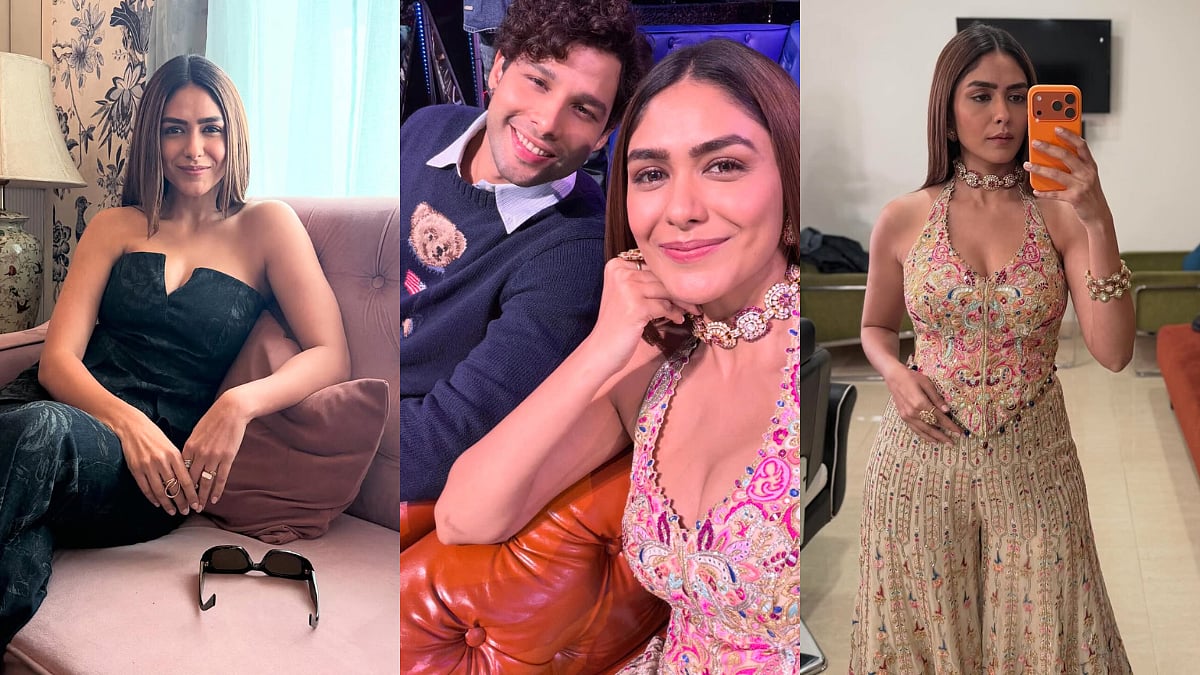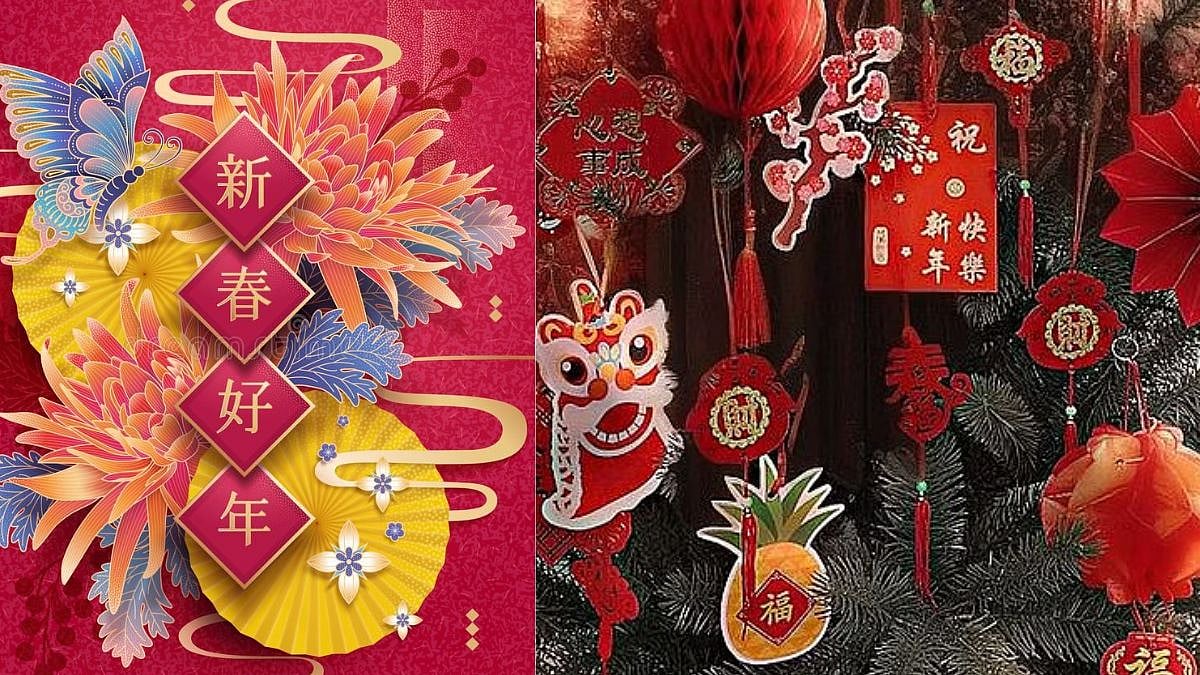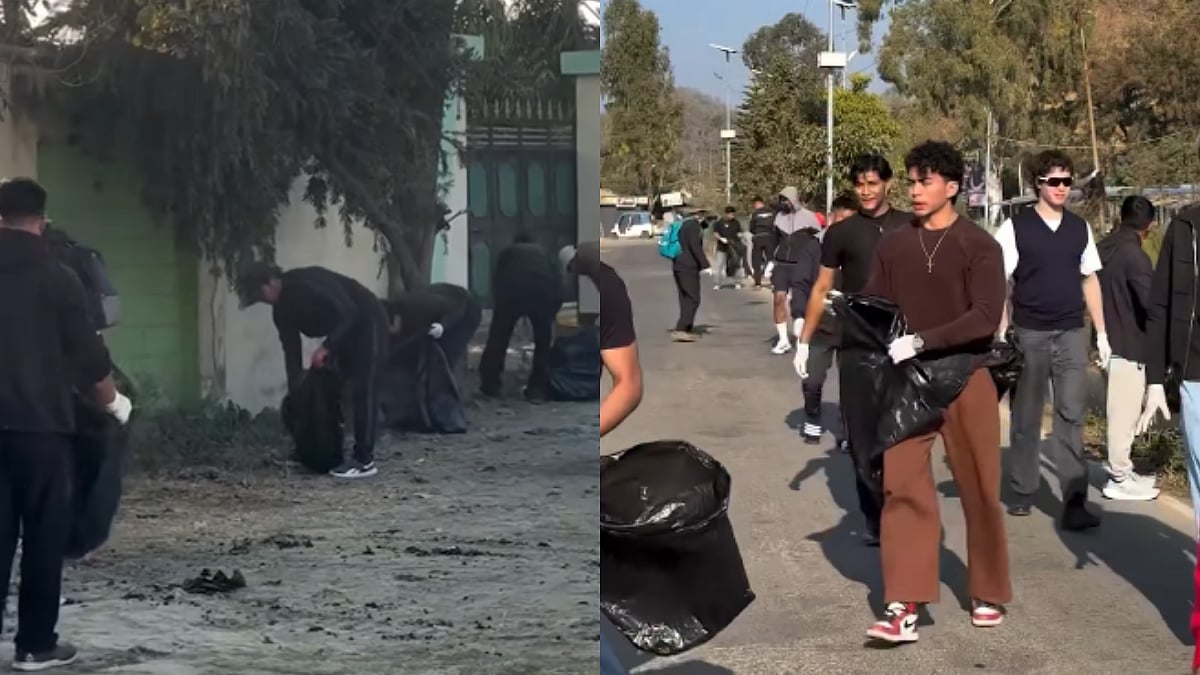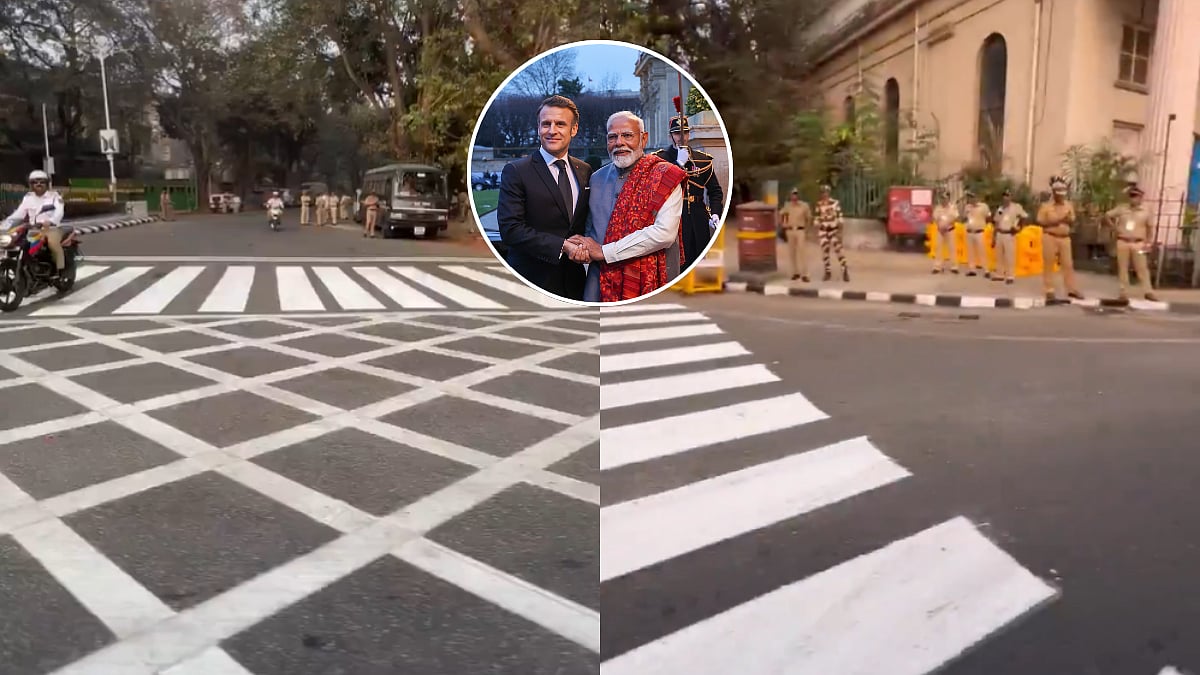If one happens to sit with Jim Sarabh for a conversation, one observes that the actor seamlessly jumps from one subject to the other. Despite the long pregnant pauses, he takes you to the hindsight of his charming personality. His thoughts flow and the responses come naturally to him. Unlike many actors in the tinsel town, Jim doesn't mince his words. It is this boldness that makes him talk comfortably and psychologically about cinema, his craft, and life in general. Each subject becomes rich with his deep understanding and reflects his personal experiences. And it is evident in the kind of work he does in cinema and theatre. From portraying a homosexual slave in Padmavat to playing the biographical character of Homi J Bhabha in Rocket Boys, which earned him an Emmy nomination for best actor, a drug paddler in Sanju, and an insecure husband in Dibakar Banerjee's short Badminton – his versatility makes the audience take notice of each of his performances. In this conversation, the actor takes us through his craft, how he perceives cinema, choices of roles, and much more.
How important are awards to you, considering you recently won the Best Actor award for Rocket Boys and a nomination for an Emmy?
The awards are great! It would be stupid of me to say that I don't like to be recognized. Because I do like to be recognised. Everyone likes to be recognised. It's simply awesome. I want people to watch my film. I want people to like me as an actor. But if I had to choose a world where I never got awarded and I just kept on doing interesting, amazing projects with incredible actors, I'd rather choose that world. I am overwhelmed and excited to be nominated under the Best Actor category at the Emmy. It is an honour to be recognised amongst such talented individuals from across the world.
Your choices for films have been very different. How do you pick a project that you want to be a part of?
Usually, the writing and the team behind the project. I'm still really old-fashioned and I prefer to sign a film only after I've read the final script and that's always the biggest factor for me. And then the second factor, of course, is the director and the producer. If it's somebody that I'm dying to work with or if it's a production house that I know really champions the films.

What kind of projects attract you, since you have worked in movies, OTT, and theatre?
Each medium is beautiful in its own way and hence I'm interested in it for themselves. For a feature, the fact that I get to work on it or for having a bit longer. For a series, my interest lies in a way where I would like to explore long-form storytelling. For theatre, the thrill of the live audience. The fact that usually if it isn't a devised piece it's been written by a playwright who is a hundred times smarter than I am and has really agonised over every piece of punctuation and every word. I simply love that.
You once told us about the process of preparing for the role, and it's really intense. Does it remain the same?
It doesn't necessarily become easier. It just depends on the project. It depends on when you get the script. If I get the script the day before, then what can I do? I can only do one day of preparation. If I get the script in advance and the director is really interested in prep, those are the ones that I love the most. The ones where the director loves rehearsal and wants to sit with me and thrash the scene out. That's my favourite part because I come from a theatrical background and in theatre, rehearsal is everything. You hit notes in the rehearsal that you may never hit on stage. Sometimes you hit things on stage that you can't hit in rehearsal because the audience is feeding you and giving you some energy. Of course, a film is made on the edit table so all of these things can be changed, but sometimes I experience jumps between things if the rhythm is being imposed on the scene by the editor as opposed to the rhythm that was found naturally on set that then the editor polishes and makes really shine.
Go on...
I personally prefer that way of working because, again, I come from theatre where you kind of need the finished product already. You need to come right on the beat. You need to know when you're pausing after somebody's line which happens in real life all the time. If you notice how people speak, like the way you just said “yeah” you didn't wait for me to finish my sentence. You said it and yet somehow it came seamlessly at my pause between sentences. It just is how we interact. You can usually tell how a person is going to finish a sentence halfway through the sentence. You're already starting to devise your answer because it just happens naturally.

There are very few actors who speak about other aspects that go into filmmaking. Are we becoming too star-struck?
We've always been starstruck. The newer generation is very interesting because they've looked behind the curtain of stardom. They understand that they can produce something fast and in one day. Based on their personality and the nature of what they put out, they can achieve fame as well. I think this new generation really requires more than just the trappings of fame and stardom. It really requires the quality of human beings as well as quality of talent, performance or quality of filmmaking in general. The actors have been informed quite strictly to not talk too much, to just ask questions and be curious and find out from the crew member, the DOP the editor, the music composer, or the production designer.
But what about the competition that exists in the industry?
Just keep trying to do projects you love. The competition is for horses.
You have also led a very private life as an actor, while there's a notion that one needs to socialise to get more work. What is your observation in all these years?
You do need to socialise to get to work sometimes. If you've seen it at certain places, I see that it does work. So there's a reason that it works. It is basically out of sight, out of mind. It's a very simple process. Of course, people have actors in mind and those actors will always be in mind. I just think that it's important to have work and personal life balance. I just really like my privacy. I like to be able to walk down the street. I like to be able to take a train if I wish to. I know it's not a reality. Keanu Reeves will do it in the States and everyone will be like, 'so humble'. But it's not the same here. Here in India, you might be called rude only because you're trying to just walk down the street or you're in your own mental space or you're thinking about your own thing or you're just in a mood and you don't feel like talking to other people. But one thing that comes with fame, I suppose, is that you have to be open to interacting at a time when you may not be interested in interacting because you're in the public eye all the time. It's just a reality. Saying it's good or bad is kind of pointless. It just is the case.

Apart from your film choices, you are also known for your fashion and gender-neutral choices. What is your comfort style?
I just like jeans and a T-shirt. But if I have to put a fashion thing or mantra 'peacock has a tail, lion has a mane.'
What made you want to be a part of Royal Stag Barrel Select Large Short Film Badminton?
The deal was struck first with one Royal Stag Barrel Select Large Short Film and they said, we'll do a series of films, all of which you're the bartender. It's very similar to what happened with BMW in the UK, where the brand with Danny Boyle and Guy Ritchie and some other very well-acclaimed UK-based directors to directed a few films. It was pitched in a similar way that this would all be surrounding a bartender, but the bartender would change from film to film. It was also very clear from the beginning that the bartender is not the focus of the film. He finally becomes the focus in the last film. In the film ‘Tomorrow’, it will be more about his experience and his story. Whereas in the other ones, he's just there to facilitate a narrative that's happening outside of himself. So, in both of the films, Badminton and in Next, Please – he's not the focus of the story. He's the witness to the story.


